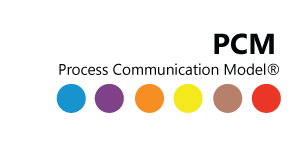 Conflict management through PCM is a two-day program created to assist participants in developing skills for constructive conflict resolution. The program is based on PCM (Process Communication Model®) methodology that will help participants improve their communication with different types of personalities. Participants will also learn how to identify potential problems in relationships and find best solutions. One of the success factors of this training is its interactivity, which allows participants to try different tools and solutions through personal experience.
Conflict management through PCM is a two-day program created to assist participants in developing skills for constructive conflict resolution. The program is based on PCM (Process Communication Model®) methodology that will help participants improve their communication with different types of personalities. Participants will also learn how to identify potential problems in relationships and find best solutions. One of the success factors of this training is its interactivity, which allows participants to try different tools and solutions through personal experience.
PCM offers a reliable and validated method of identifying and understanding personality structure, the impact of life events and communication dynamics. Based on a scientific award–winning discovery by Dr. Taibi Kahler, PCM has been used for more than thirty years and experienced by almost a million people on five continents in such applications as business, sales, education, politics, medicine, personal relationships, religion, parenting, etc. NASA has been using Process Communication Model for the selection and training of astronauts since 1978. Today, the model’s adherents include Fortune 500 CEOs and managers, politicians and prominent psychiatrists.
This training will provide participants with:
● Insight into the types and stages of conflict
● Suggestions for resolving conflicts
● Insight into the deep structure of their own personality
● Tools to identify the deep structure of other person’s personality
● Experiential strategy for preventing or resolving conflicts with others, which can be used immediately after the training.
![]()
The training is divided into two phases:![]()
At this stage, through an online questionnaire, participants create an individualized report based on the PCM methodology with detailed and specific information about their personality structure. Individualized profile identifies participant’s “Base” as one of six personality types. Other components provide more information about each personality type and their importance for the participant. The report will also help participants identify their strengths and explain how they can use them in communication with specific personality types. They will also learn how those strengths can easily become weaknesses in communication with other personality types. This profile has a great value because it identifies possible negative behavior patterns, explains the reasons why they occur and gives suggestions for turning them into potentially successful patterns.
The report also focuses on:
● Unique personality structure
● Personality strengths
● The perception of the world and the ability to see things from different angle
● Preferences in interaction with others
● Communication channels
● Parts of personality that are commonly used in communication
● Psychological needs
● Unique patterns of stress that can sabotage the personal and professional success
● Unique Action Plan
![]()
Through carefully designed theoretical part and series of interactive workshops the participants will learn models and tools for successful conflict resolution, and practice their application in communication with different types of personalities.
Topics covered in this training:
● How conflicts arise
● Different factors that can lead to conflict
● Understanding different ways of responding to conflict situations depending on the other person’s personality structure
● Basic characteristics of six PCM personality types (Thinker, Harmonizer, Imaginer, Persister, Promoter, Rebel)
● Basic psychological needs of each of the personality types
● The connection between our psychological needs and our behavior in conflict situations
● How to recognize conflicts and misunderstandings in the early stages of their formation
● How to identify and prevent possible conflicts with people who have different personality structure
● Identifying and solving the conflicts with people who have different personality structure
● The outcomes of conflict as a result of different strategies
● What causes stress for different personality types?
● What are the drivers and how to recognize them in problem situations?
● Suggestions for the development of an action plan for the prevention and resolution of conflicts



 Čeština
Čeština Srpski
Srpski Portuguese
Portuguese 